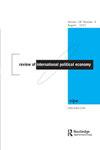Food (in)security, the moral economy, and Ubuntu in South Africa: a Southern perspective
IF 3.7
1区 经济学
Q1 ECONOMICS
引用次数: 1
Abstract
COVID-19 and rising energy costs have highlighted the interconnectedness of class, gender, race, and food insecurity. This article focuses on three interrelated arguments: the paradox of growing food surpluses alongside hunger and malnutrition;the role of a reconfigured Ubuntu philosophy;and two organisations that, despite central government's failure to prioritise food provision as a moral and human rights issue, are operationalising Ubuntu. Critical re-appraisal of Ubuntu regarding food insecurity has been a neglected area of research. In drawing from the moral economy, we make an urgent case for a Southern perspective of Ubuntu as a more nuanced, dynamic, and holistic approach for addressing excess food production and indigence. Using qualitative analysis to examine community projects in South Africa, namely, Abalimi Bezekhaya in the Eastern and Western Cape and Siyavuna Abalimi in KwaZulu-Natal, Ubuntu is shown to offer a radical solution where collective structural organisation is sensitive to nutritional needs and grounded on communal responsibility rather than profits.南非的粮食安全、道德经济和乌班图:南方视角
新冠肺炎和能源成本上涨凸显了阶级、性别、种族和粮食不安全的相互关联。这篇文章集中讨论了三个相互关联的论点:粮食盈余与饥饿和营养不良并存的悖论;重新配置的Ubuntu哲学的作用;以及两个组织,尽管中央政府未能将粮食供应作为一个道德和人权问题来优先考虑,但它们正在运营Ubuntu。对Ubuntu关于粮食不安全的批判性重新评估一直是一个被忽视的研究领域。从道德经济的角度出发,我们迫切需要从南方的角度看待Ubuntu,将其视为一种更微妙、更动态、更全面的方法,以解决粮食生产过剩和贫困问题。使用定性分析来检查南非的社区项目,即东开普省和西开普省的Abalimi Bezekhaya和夸祖鲁-纳塔尔省的Siyavuna Abalimi,Ubuntu被证明提供了一个激进的解决方案,即集体结构组织对营养需求敏感,并以社区责任而非利润为基础。
本文章由计算机程序翻译,如有差异,请以英文原文为准。
求助全文
约1分钟内获得全文
求助全文
来源期刊
CiteScore
9.20
自引率
9.30%
发文量
47
期刊介绍:
The Review of Political Economy is a peer-reviewed journal welcoming constructive and critical contributions in all areas of political economy, including the Austrian, Behavioral Economics, Feminist Economics, Institutionalist, Marxian, Post Keynesian, and Sraffian traditions. The Review publishes both theoretical and empirical research, and is also open to submissions in methodology, economic history and the history of economic thought that cast light on issues of contemporary relevance in political economy. Comments on articles published in the Review are encouraged.

 求助内容:
求助内容: 应助结果提醒方式:
应助结果提醒方式:


